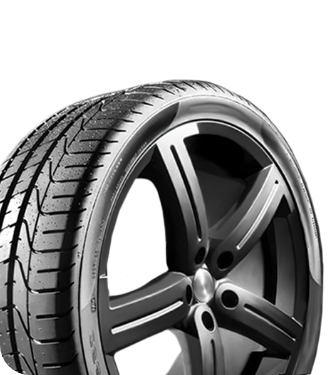

What To Look For in a Reliable Tire Warranty
Tires |Every driver knows that sinking feeling when you spot a nail in your tire or notice uneven wear after just a few thousand miles. Your tires should last you a few years, but that’s not always the case. They are one of the most important components of your car, yet they’re also the most vulnerable to damage.
A solid tire warranty is the difference between a minor inconvenience and a major expense. But what should you look for in a reliable tire warranty? Follow this guide to understand how to find the best tire warranty that you can rely on in any situation.
Basics of Tire Warranty
When you start your search for a tire warranty, it can be a bit daunting. To make informed decisions about your vehicle’s tire needs, it’s essential to understand the basics of tire warranties, including what you truly require and what may be unnecessary add-ons.
What Tire Warranties Cover
Tire warranties usually fall into three main categories: tread life, road hazards, and manufacturing defects. Tread life warranties guarantee your tires will last for a specific number of miles before wearing down to unsafe levels.
Road hazard warranties are used to cover damage from anything on the road. This includes potholes, nails, glass, and other unexpected debris you might accidentally find while driving. Finally, manufacturing defect warranties cover any faulty materials or workmanship issues that may cause the tire to wear out prematurely.
The most comprehensive tire warranties combine all three types of coverage. This protects against premature tire wear, road damage, and manufacturing defects. Some warranties also include additional benefits, such as emergency roadside assistance or free tire rotations.
How Warranty Claims Work
When you need to use your tire warranty, the process should be straightforward. Most reputable manufacturers require you to present your original purchase receipt and have the tire inspected by an authorized dealer.
Your tire tread depth and other damage will be examined to determine if your claim is valid. For tread life warranties, manufacturers typically use a pro-rated system. If your tire wears out before reaching the guaranteed mileage, you’ll receive credit toward a new tire based on how much tread life remains.

Key Features of Strong Tire Warranties
A good tire warranty can offer peace of mind by protecting your investment and ensuring your vehicle stays safe on the road. Whether you’re dealing with unexpected damage or simply want assurance about the longevity of your tires, understanding the key features of a strong warranty is essential.
Comprehensive Tread Coverage
Reliable tread life warranties should always guarantee your tires for at least 40,000 to 80,000 miles, depending on the type of tire and quality. Premium tires can exceed 80,000 miles, but your warranty should specify the exact mileage guaranteed and explain how pro-rated credits are calculated.
Look for warranties that don’t have unrealistic maintenance requirements; that is how some less reputable dealers can avoid paying for repairs. Some manufacturers require tire rotations every 5,000 miles, accompanied by documented proof, while others are more flexible. Ensure the maintenance schedule aligns with your driving habits and budget.
Robust Road Hazard Protection
Quality road hazard warranties will cover any punctures, cuts, impact damage, and sidewall damage that your car experiences during normal driving conditions. Some warranties will also protect your tires against vandalism or theft.
Great road hazard warranties won’t charge a deductible for the first replacement and will offer reasonable deductibles for subsequent claims. Avoid warranties with high deductibles that could cost more than simply buying a new tire.
Manufacturing Defect Guarantees
Manufacturing defects are relatively rare in quality tires, but they can be hazardous when they do occur. A solid warranty should cover any problems that result from poor materials or workmanship, including any separation, cracking, and bulging. This coverage should be valid for the entire life of the tire, not just the first year.
Reputable manufacturers are confident in their products and should replace defective tires at no cost to you. They understand that manufacturing defects can compromise safety and handle these claims quickly and professionally.
Red Flags To Avoid
Ensure that you are purchasing quality warranties by recognizing any warning signs during the process. By being aware of common red flags, you can avoid costly mistakes and select services that truly support your vehicle’s performance and longevity.

Excessive Restrictions
Some tire warranties appear impressive on paper but become nearly useless when you need to use them. Watch out for warranties that require extensive documentation, have narrow definitions of covered damage, or exclude common types of tire problems.
If you miss a single tire rotation or can’t provide detailed maintenance records, you might lose your entire warranty coverage. Warranties like this were not designed to be helpful, so confirm that the fine print of your contract meets your needs without arduous requirements.
Short Coverage Periods
Tire warranties that only last 12 to 24 months provide minimal value for you and your vehicle. Quality tires should last you at least two years, if not much longer, when used normally. Short warranty periods often indicate that the manufacturer lacks confidence in the product’s durability.
You should also avoid warranties that only cover a small percentage of the tire’s expected lifespan. A warranty that expires at 30,000 miles on a tire rated for 70,000 miles leaves you unprotected during most of the tire’s useful life.
High Deductibles and Hidden Fees
Some warranties advertise great coverage, but charge high deductibles that reduce their value. A $75 deductible on a $150 tire replacement significantly limits your savings. Look for warranties with reasonable deductibles or no deductibles for the first claim.
Hidden fees are another concern for your warranty purchases. Those fees can erode the value of the warranty, as some charge processing and inspection fees that reduce your savings. Factor these costs into your warranty evaluation before making a purchase.
Your Next Steps for Tire Protection
Now that you understand what to look for in a tire warranty, you can choose the right one. That requires striking a balance between coverage, cost, and convenience factors that are important to you. Focus on warranties that offer comprehensive protection without excessive restrictions or hidden fees.
Before purchasing your warranty plan, ensure you have reliable tires. Come to RNR Tire Express for affordable, high-quality tires that you can confidently invest in. Our tire shop in Tucson can help you find the best tires for your vehicle. Don’t look for the cheapest options; invest in tires that will serve you well for years to come. Visit our website or shop to find the perfect tires for your car.





